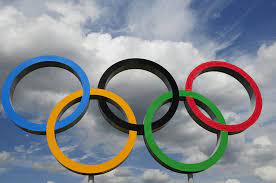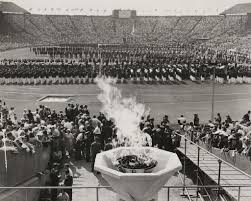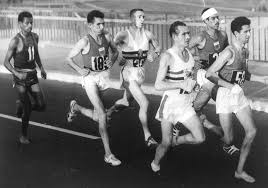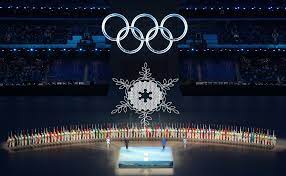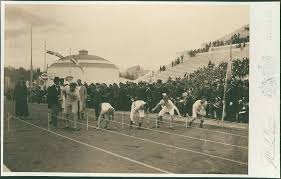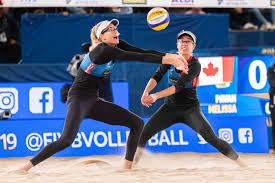International Olympic day: Everything you need to know about!
4 minuteRead

By Samyati Mohanty
Olympic Day Background History
Doctor Gruss, an IOC member from Czechoslovakia, presented a report on a World Olympic Day celebration that would primarily be a day of promoting the Olympic idea in 1947 during the 41st Session of the International Olympic Committee in Stockholm. A few months later, in January 1948, during the 42nd IOC Session in St. Moritz, the concept was approved. In order to commemorate the founding of the International Olympic Committee at the Sorbonne, Paris, on June 23, 1894, where Pierre de Coubertin revived the Olympic Games, the National Olympic Committees (NOCs) were given responsibility for organising this event and asked to select a date between June 17 and June 24.
Olympic Day, the first
On June 23, 1948, the inaugural Olympic Day was observed. Sigfrid Edström, the IOC President at the time, addressed the world's youth on this particular occasion. Olympic Days were organised in Portugal, Greece, Austria, Canada, Switzerland, Great Britain, Uruguay, Venezuela, and Belgium, among other nations.
Day of the Olympics in the Olympic Charter
The IOC first proposed that all NOCs hold an Olympic Day to support the Olympic Movement in the 1978 version of the Olympic Charter: "It is recommended that NOCs routinely hold (if possible each year) an Olympic Day intended to support the Olympic Movement."
Run on Olympic Day
Olympic Day's main event is generally regarded as the Olympic Day Run. It was first held in 1987, and since then NOCs have organised it to commemorate Olympic Day and advance mass sport. The number of participating NOCs has increased from 45 in the first edition in 1987 to over 150.
Current Concept
Today, Olympic Day encompasses much more than just a race or a sporting event. NOCs implement athletic, cultural, and educational programmes aimed at everyone – regardless of age, gender, social background, or sporting skill – based on the pillars of "Move, Learn, Discover - Together for a better world." In certain nations, the festival is taught in schools, and in recent years, several NOCs have expanded the celebration to include concerts and exhibitions. Recent NOC initiatives have included bringing elite athletes into contact with kids and teenagers as well as the creation of new websites that point users to local programmes. Everyone can now participate in Olympic Day more easily thanks to this. In recent years, the development of social media has helped the IOC to boost participation beyond NOC activities.
Indian women in Olympics Facts
Karnam Malleswari, who won a bronze medal in the Women's 69 kg weightlifting division at the 2000 Sydney Olympics, became the first Indian woman to ever take home an Olympic medal.
Women's boxing was introduced as a sport at the London Olympics in 2012. Only one Indian qualified for the competition, and she was Mary Kom, a five-time world champion. She was defeated by Nicola Adams of the UK in the semifinals, though. She consequently received a bronze medal at the Olympics. By winning the bronze medal in badminton at the London Olympics 2012 on August 4, Saina Nehwal became the first Indian to achieve so.
Geeta Phogat qualified for the women's 55 kg wrestling competition at the 2012 Summer Olympics in London for the first time ever. In 2004, women's wrestling was announced.
P. V. Sindhu won a silver medal at the 2016 Summer Olympics in Rio, making history as the first Indian woman to do so. On August 19, 2016, Carolina Marn of Spain defeated her in the Women's Singles Badminton Final. She also became the nation's youngest Olympic medalist. Sakshi Malik became the first Indian woman to win a medal in wrestling in the same Olympics. In women's 58 kg freestyle wrestling, she took home the bronze medal. For India, this was the first Olympic Games where all two medal winners were female.
By earning medals at the 2020 Tokyo Olympics, P. V. Sindhu, Saikhom Mirabai Chanu, and Lovlina Borgohain brought honour to their country, India. On the opening day of the Tokyo Olympics 2020, Saikhom Mirabai Chanu earned the silver medal after placing second overall in the Snatch and Clean & Jerk events. She was able to lift 87 kg at Snatch and 115 kg at Clean & Jerk, giving her an overall score of 202 kg. The first Indian woman to win two Olympic medals was P. V. Sindhu. She defeated China's He Bingjiao in two straight games for the bronze medal in Tokyo 2020 after winning the silver medal in Rio 2016. Women's welterweight boxing is where Lovlina Borgohain won her maiden Olympic medal. After defeating Chen Nien-Chin of Taiwan in the quarterfinals, she was guaranteed a medal. She lost to Busenaz Sürmeneli of Turkey in the semifinals, earning herself the bronze medal.
2022 Olympic Day: #MoveForPeace
The new pillar, "Together for a better world," was unveiled in 2022. It addresses issues like sustainability, inclusivity, solidarity, and peace with the goal of uniting people to use sport to make the world a better place. The pillar will concentrate on a different theme that serves as a unifying global thread every year.
The theme for 2022 honours how sports can unite people in harmony, and it serves as a rallying cry for action leading up to and on the day of the Olympics to demonstrate widespread support for world peace.
The Olympic ideals
Through the four pillars of move; learn; discover; and together, for a better world, Olympic Day provides an additional opportunity to commemorate the Olympic ideals of excellence, friendship, and respect:
- On Olympic Day, Move urges participants of all ages and abilities to get active by participating in the Olympic Day Run and other nearby events.
- Learn highlights how physical exercise and sport may help to improve social situations while promoting the Olympic values and the role of sport in society.
- In the company of neighbourhood clubs, athletes, and even Olympians, Discover is all about encouraging individuals to try new sports and hobbies they've never engaged in before.
- Olympic Day becomes a global day of activity and connection when people come together for the Olympic values through the campaign Together, for a better world. The new pillar, which will be available in 2022, enables a yearly focus on a particular theme. Together, for a Peaceful World is the theme for this year.
The following were notable events in 2021:
- Since "great things happen when you have a try," Australia established the "Have a Go" campaign to encourage teachers to help young pupils celebrate the Olympic Games in the classroom.
- To promote the IOC's dedication to sustainable development, Barbados organised a complete week of Olympic Day events, which included a tree-planting ceremony.
- In order to encourage families and schools to get active while learning about the Olympic principles, Great Britain tied its celebrations to its brand-new Get Set youth engagement initiative.
- A national multi-sport relay was held in Kazakhstan, featuring competitions in climbing in Almaty, cycling in Petropavl, athletics in Ust-Kamenogorsk, and boxing and judo master classes in Aktau.
- Mali advocated the avoidance of doping in sports and honoured the three Olympic principles of excellence, friendship, and respect.
The schedule for this year promises a large variety of events from around the globe. To find out what's going on in your area on June 23, check the channels of your local NOC. Then, join forces for a peaceful world.
Write, Record and Answer! Consume Unlimited Content! All you need to do is sign in and its absolutely free!
Continue with one click!!By signing up, you agree to our Terms and Conditions and Privacy Policy.




